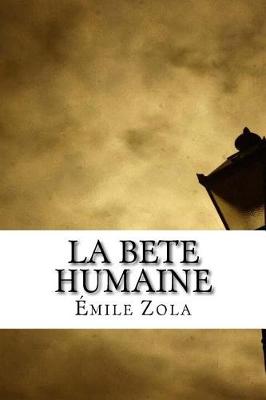
Did possessing and killing amount to the same thing deep within the dark recesses of the human beast?
La Bete humaine (1890), is one of Zola's most violent and explicit works. On one level a tale of murder, passion and possession, it is also a compassionate study of individuals derailed by atavistic forces beyond their control.
Zola considered this his `most finely worked' novel, and in it he powerfully evokes life at the end of the Second Empire in France, where society seemed to be hurtling into the future like the new locomotives and railways it was building. While expressing the hope that human nature evolves through education and gradually frees itself of the burden of inherited evil, he is constantly reminding us that under the veneer of technological progress there remains, always, the beast within.
This new translation captures Zola's fast-paced yet deliberately dispassionate style, while the introduction and detailed notes place the novel in its social, historical, and literary context.
ABOUT THE SERIES: For over 100 years Oxford World's Classics has made available the widest range of literature from around the globe. Each affordable volume reflects Oxford's commitment to scholarship, providing the most accurate text plus a wealth of other valuable features, including expert introductions by leading authorities, helpful notes to clarify the text, up-to-date bibliographies for further study, and much more.
The perfect book for those who find watching grass grow just too unbearably exciting. A promising premise for a story drowned in inane detailing, incessant repetition, idle chitter-chatter, and gossipy dialogue. The insight into the workings of the French railways in the 19th century may conceivably of some interest to certain readers.
Reading updates
-
Started reading
-
11 January, 2020:
Finished reading
-
11 January, 2020:
Reviewed
